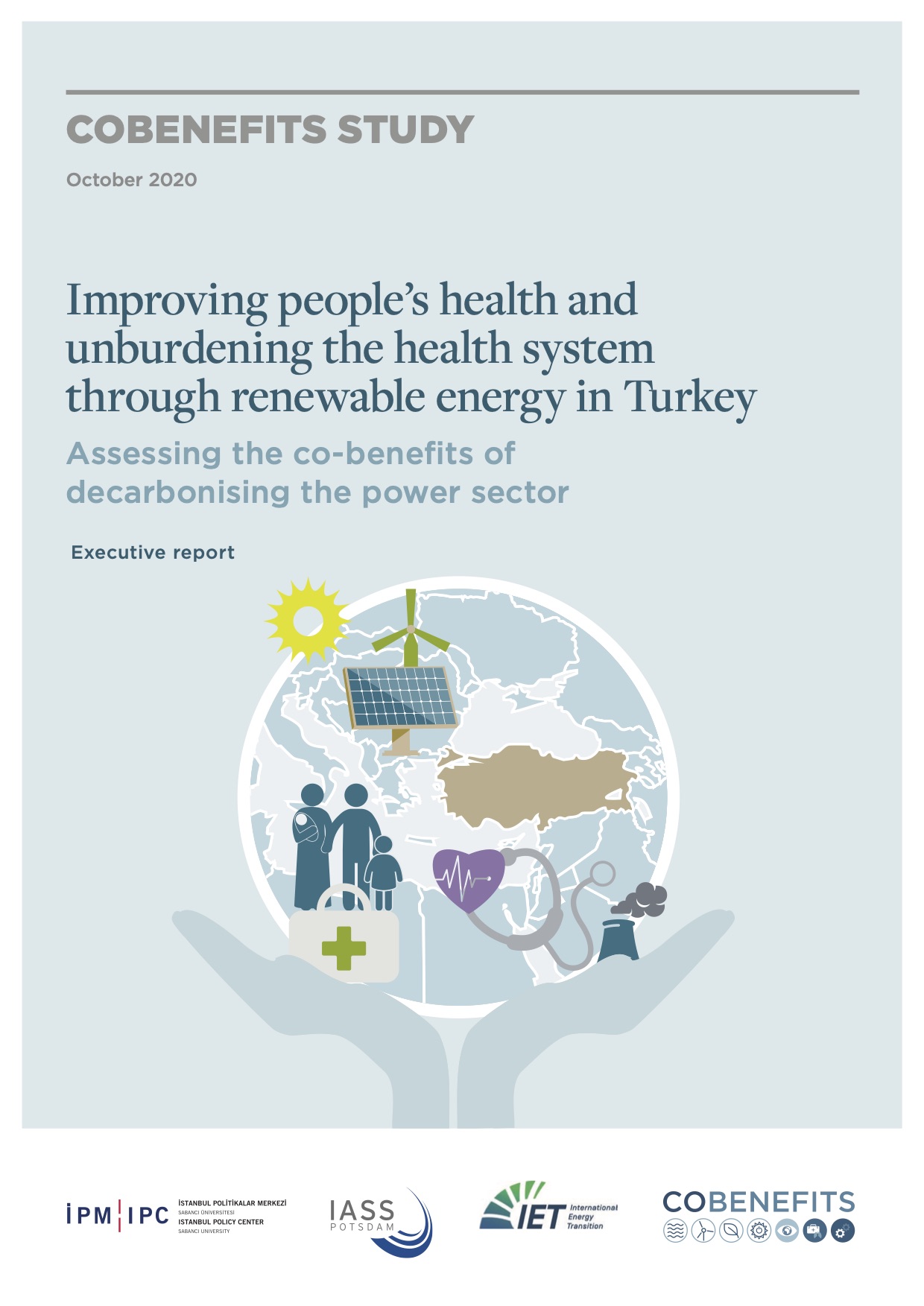 Coal- and natural gas-fired power plants in Turkey are significant sources of atmospheric emissions that are harmful to people’s health and the environment. This study analyses the impacts of the pollutants CO, SO2, NO2, and PM10 on human health. Turkey’s need for electricity will continue to increase in the coming years. Recognising that coal- and natural gas-fired electricity generation are major contributors to atmospheric pollutants and related health impacts, it is evident that an increased share of renewable energy in electricity generation would help lessen the problems of air pollution and reduce costs for the Turkish health system.
Coal- and natural gas-fired power plants in Turkey are significant sources of atmospheric emissions that are harmful to people’s health and the environment. This study analyses the impacts of the pollutants CO, SO2, NO2, and PM10 on human health. Turkey’s need for electricity will continue to increase in the coming years. Recognising that coal- and natural gas-fired electricity generation are major contributors to atmospheric pollutants and related health impacts, it is evident that an increased share of renewable energy in electricity generation would help lessen the problems of air pollution and reduce costs for the Turkish health system.
Download:
Key policy opportunities:
Policy opportunity 1: Turkey can significantly reduce the number of premature deaths related to air pollution from fossil-fuelled power plants. Under the current policy, mortality can be expected to increase from 2,100 cases in 2017 to more than 2,300 cases in 2028. By following an ambitious decarbonisation pathway (Advanced Renewables Scenario B), estimated mortality would be reduced to less than 1,600 cases in 2028, thus avoiding more than 750 deaths in that year alone.
Policy opportunity 2: Turkey can significantly unburden its health system by decarbonising the power sector: Under the current policy, annual health-related costs can be expected to increase from USD 2.15 billion in 2017 to USD 2.5 billion in 2028. By following an ambitious decarbonisation pathway (Advanced Renewables Scenario B), health cost savings in 2028 can amount to USD 800 million in this year alone.
Policy opportunity 3: The Ministry of Energy can support measures to track progress in reducing health impacts and related health costs by ensuring access to air pollutant emission data from individual power plants, detailing the relevant fuel, technological, and emission control standards. Public monitoring and technical analysis of power plants can improve the quality and reliability of air pollution and health cost assessments. This can be facilitated by public access to technical data on thermal power plants, such as filtration methods, combustion techniques, water consumption, fuel usage, and atmospheric pollution releases.
Suggested citation: IASS/IPC. 2020. Improving people’s health and unburdening the health system through renewable energy in Turkey. Assessing the co-benefits of decarbonising the power sector. COBENEFITS Report. Potsdam/Istanbul. www.cobenefits.info
This study is part of a series of four studies assessing the co-benefits of decarbonising the power sector in Turkey, edited by IASS, IPC, EPRA and IET.
